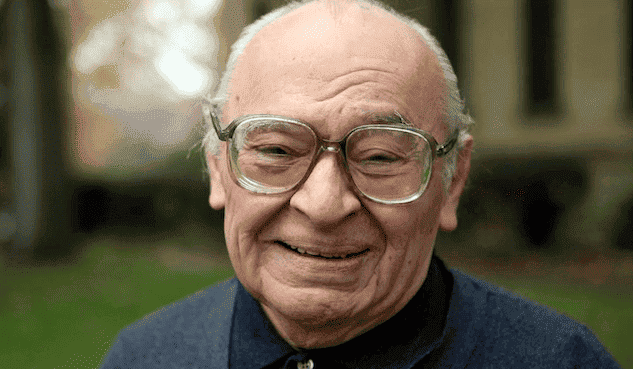|
إستماع
Getting your Trinity Audio player ready...
|
That Roman night, which united Cardinal Gerhard Müller with his longtime friend Father Gustavo Gutiérrez, marked an official rehabilitation of sorts for Gutiérrez. The outcome later was given an exclamation point when Pope Francis sent the aging Dominican a note praising his “theological service” on the occasion of his 90th birthday in June 2018.
Gutiérrez, who died Oct. 22 at the age of 96, was an icon of 20th century Latin American Catholicism, and for decades, reactions for or against Gutiérrez’s pioneering theology marked the primary fault lines in the church on the continent.
We got a reminder of the point just three days before Gutiérrez’s death, when Cardinal-elect Carlos Gustavo Castillo Mattasoglio of Lima, Peru, published a newspaper piece highly critical of the Sodalitium Christianae Vitae, a lay group in Peru, among other things blaming the group and its founder for what Castillo called an “unjust persecution” and “insane response” to Gutiérrez.
“They considered him a leftist,” Castillo wrote. “Instead, he was just a man open to the Gospel and the signs of the times, who updated the faith for our poor and deeply religious continent.”
It all began in 1968, when a 40-year-old Gutiérrez acted as an advisor to an assembly of the Latin American bishops in Medellín. Afterwards he wrote a book born in part of that experience, which was originally slated to be called “Towards a Theology of Development” but eventually became “Toward a Theology of Liberation.”
The book was published in 1971, and thereby gave a name to what would become the defining post-Vatican II impulse in the Latin American church.
As controversies over liberation theology built in the 1980s, it was inevitable that Gutiérrez would become a target. In 1983, then-Cardinal Joseph Ratzinger, the future Pope Benedict XVI, wrote to the Peruvian bishops asking them to investigate Gutiérrez. Ratzinger cited several alleged problems in Gutiérrez’s work, including an allegedly Marxist view of history, a selective reading of the Bible to focus on material redemption, and a class-driven concept of theology.
The bishops were divided, but seemed prepared to issue some sort of negative verdict until a last-minute intervention came from the legendary German Jesuit theologian Father Karl Rahner, just two weeks before his death at the age of 80.
“I am convinced of the orthodoxy of the theological work of Gustavo Gutiérrez,” Rahner wrote. “The theology of liberation that he represents is entirely orthodox. A condemnation of Gustavo Gutiérrez would have, it is my full conviction, very negative consequences … Today there are diverse schools and it has always been thus … It would be deplorable if this legitimate pluralism were to be restricted by administrative means.”
Eventually all the Peruvian bishops were summoned to Rome, then went back home and fashioned a sort of compromise conclusion that raised some critical concerns, but never accused Gutiérrez of error and did not impose any sanction.
Despite the result, Gutiérrez still faced strong backlash from conservative elements of the Peruvian church, including the Cardinal Juan Luis Cipriani Thorne of Lima.
“They created a system of pastoral work that is now inside of the church, and not only in Peru,” Cipariani said of the theological current launched by Gutiérrez, in a 2004 interview with me.
“Desacralization, making social work the first thing to do, criticizing the magisterium, involving priests in politics … It’s a whole system, a parallel magisterium to the real magisterium. … This way of doing the church, the pastoral work, is still going on and is quite difficult to change,” Cipriani said.
Such pressure is one of the reasons that led Gutiérrez to leave the Lima archdiocese and join the Dominican order in 1999. (Ironically, the master of the Dominicans who welcomed Gutiérrez into the order was Father Timothy Radcliffe, who will be made a cardinal by Pope Francis on Dec. 7.)
Gutiérrez was the John Cardinal O’Hara Professor of Theology at the University of Notre Dame. He was previously a professor at the Pontifical University of Peru, and has served as a visiting professor at many universities in North America and Europe. Gutiérrez held nearly 20 honorary degrees and founded the Bartolomé de Las Casas Institute in Lima, Peru. He was made a member the French Legion of Honor in 1993 for his work for human dignity in Latin America.

For people who met Gutiérrez over the years, usually the first thing that made an impression was his remarkably short stature – which, combined with his wizened face and penchant (in English, anyway) for issuing bits of wisdom in slightly non-syntactical fashion, led more than one wag to compare Gutiérrez to the character Yoda from “Star Wars.”
Yet his diminutive size always stood in contrast to his larger-than-life intellectual statue, as one of just a handful of Catholic theologians in the 20th century who truly left a permanent mark on the church.
Agree with his theology or not, there’s no disputing the point that Gustavo Gutiérrez mattered. Catholic conversation will be poorer for his absence – and, given his lifelong passion for the poor, perhaps that’s the most poetically apt tribute possible.

